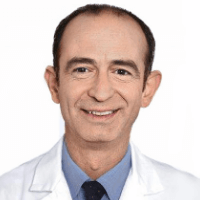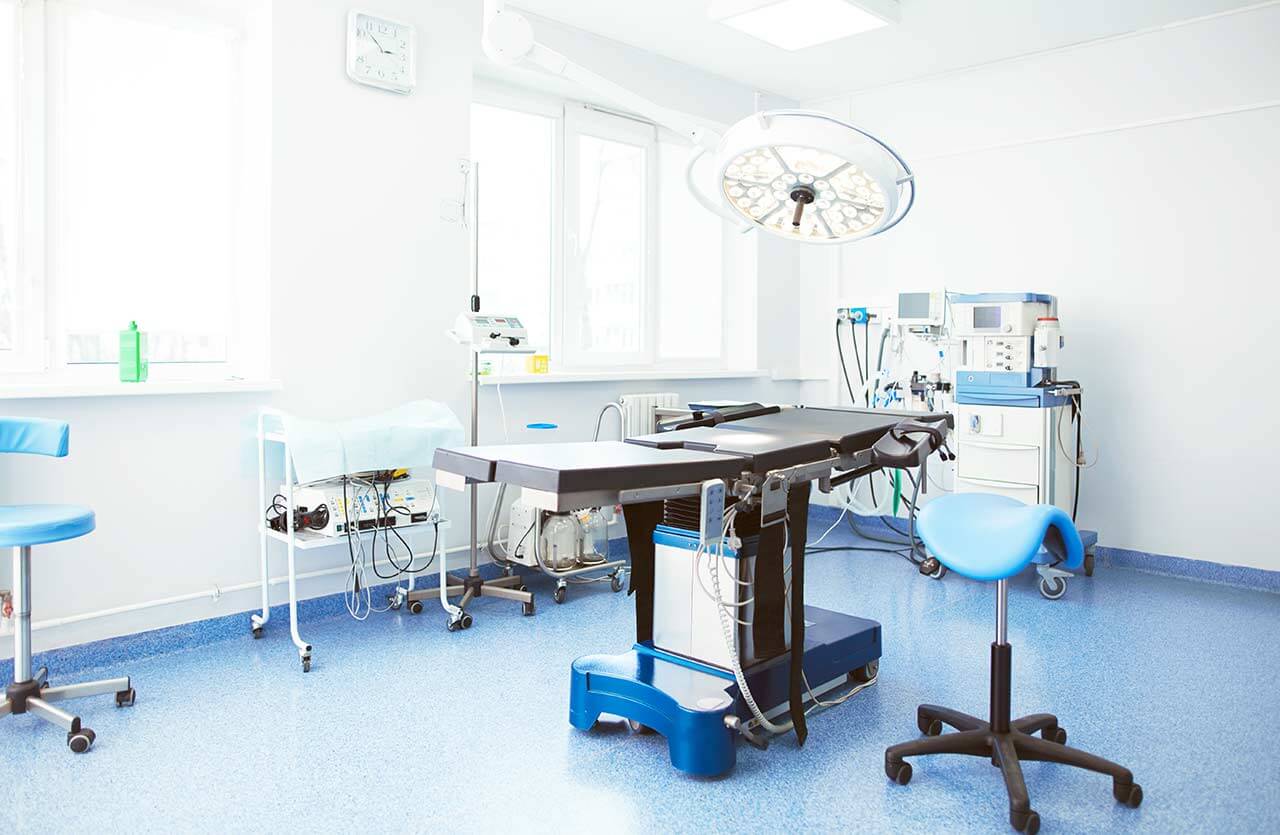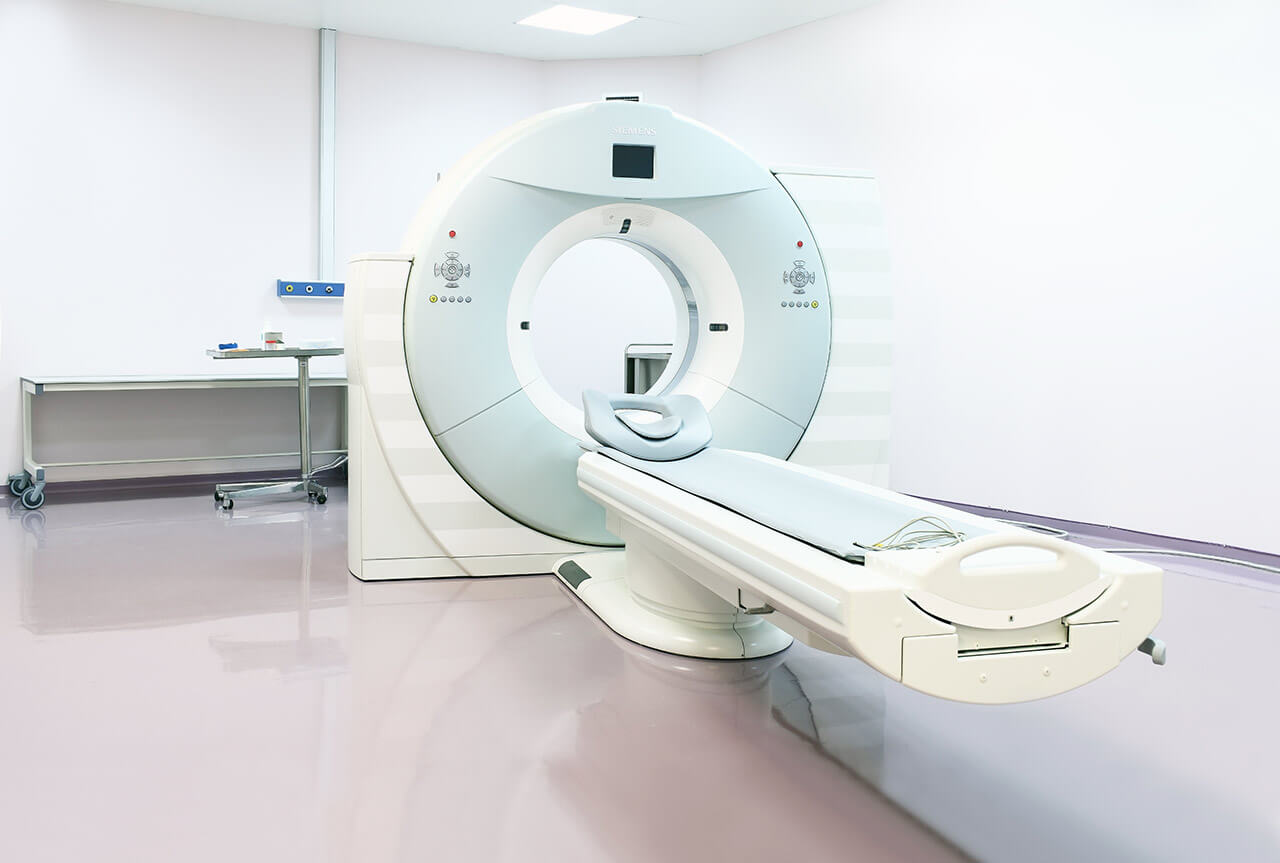
The program includes:
- Initial presentation in the clinic
- case history collection
- general clinical examination
- urological examination
- laboratory tests:
- complete blood count
- general urine analysis
- biochemical analysis of blood
- TSH-basal, fT3, fT4
- tumor markers
- indicators of inflammation
- indicators of blood coagulation
- pelvic ultrasound scan
- CT/MRI scans (if indicated)
- chemotherapy, cost of medicines is included
- radiation therapy (full course)
- symptomatic treatment
- nursing services
- cost of essential medicines and materials
- consultations of leading experts
- explanation of individual treatment plan
How program is carried out
During the first visit, the doctor will conduct a clinical examination and go through the results of previous laboratory tests and instrumental examinations. After that, you will undergo an additional examination, including complete blood count, laboratory assessment of liver and kidney function. Based on the received results, the physician will elaborate the chemotherapy regimen, conduct radiotherapy planning with the help of CT or MRI, make the permanent tattoo marks on the skin and conduct CT simulation in order to assess the accuracy of the rays and the radiation dose. If necessary, related medical specialists will be involved in the elaboration of a treatment regimen (tumor board).
Chemotherapy and radiation therapy are carried out as the day hospital procedure, without mandatory admission to the hospital. At each visit, the physician will assess your general condition and the marks on the skin. After that, you will be placed in a shielded radiation therapy room, on a special table.
Each radiation therapy session lasts less than half an hour (including preparation). All this time, doctors and nurses are monitoring your condition, you can communicate with them through a loudspeaker. The procedure is completely painless. Depending on the planned course of treatment, you will visit the hospital from 1 to 3-5 times a week.
During the chemotherapy session, after the placement of a venous catheter, you will stay in a comfortable ward. An infusion system will be connected to the catheter, through which the required drug or a drug combination will be administered. All drugs are administered by intravenous drip, slowly, so the total duration of the infusion can be up to several hours. All this time, doctors and nurses will monitor your health condition closely.
After the completion of the chemotherapy and radiation therapy course, you will undergo control examinations aimed at assessing your condition and efficacy of treatment. After that you will receive the medical report with detailed recommendations regarding further follow-up and treatment. In the future, you will be able to have a distant consultation with your attending physician and schedule the next course of treatment, if necessary.
Required documents
- Medical records
- MRI/CT scan of the abdomen and pelvis (not older than 3 months)
- Biopsy results (if available)
Service
You may also book:
 BookingHealth Price from:
BookingHealth Price from:
About the department
The Department of Oncology at the Hirslanden Clinic Aarau offers all the options of modern medicine for the accurate diagnostics and effective treatment of malignant diseases of various organs and anatomical structures of the body. The department is one of the leading medical facilities in Switzerland in the area of its specialization. The Chief Physician of the department is PD Dr. med. Christos Kolotas.
The department regularly holds tumor boards with the participation of oncologists and doctors from related fields, which serve for the development of individual treatment regimens for each patient. A particular importance is also attached to the follow-up monitoring of patients, as it aims to monitor treatment results and prevent cancer recurrence. The patients can be admitted both on an inpatient and outpatient basis.
The department has a well-coordinated team of oncologists, surgical oncologist, radiation therapists, psycho-oncologists and other specialists who provide patients with the comprehensive treatment, which meets current clinical protocols. In most cases, the treatment is based on the surgical removal of the tumor, which is complemented by chemotherapy and/or radiation therapy. If desired, the patients can take part in clinical trials. As a rule, this option is relevant for patients with advanced stages of cancer. The patients receive palliative care in order to relieve pain and improve the quality of life.
It is worth noting that the department's specialists have excellent equipment for radiation therapy. The progressive devices allow the doctors to focus the maximum radiation dose on the tumor, while minimizing damage to healthy neighboring tissues. The modern radiation therapy provided in the department also significantly reduces the severity of side effects. The department widely uses such types of radiation therapy as intensity-modulated radiation therapy and imaging-guided radiation therapy. They are among the most effective and innovative types of irradiation.
The department specializes in the diagnostics and treatment of the following diseases:
- Breast cancer
- Cancer of the female reproductive organs (for example, ovarian cancer, endometrial cancer)
- Gastrointestinal cancer (for example, esophageal, stomach, colorectal, pancreatic cancers)
- Kidney and urinary tract cancers
- Prostate and testicular cancer
- Head and neck tumors
- Soft tissue sarcomas
- Malignant diseases of the hematopoietic and lymphatic systems
- Lymphomas
- Myelomas
- Leukemias
- Other cancers
The therapeutic service range of the department includes:
- Chemotherapy (on an inpatient and outpatient basis)
- Targeted therapy
- Immunotherapy
- Hormone therapy
- Maintenance therapy (including blood transfusion)
- Palliative care
- Clinical trials
- Psycho-oncological care
- Nutrition counseling
- Physiotherapy
- Other treatment methods
Curriculum vitae
Professional Career
- Since June 2006 Work in the Department of Oncology at the Hirslanden Clinic Aarau.
- 2003 - 2006 Senior Physician, Department of Radiation Oncology at the University Hospital Bern.
- 1995 Board certification in Radiation Oncology.
- 1993 - 2002 Senior Physician, Department of Radiation Oncology, Clinic Offenbach.
- 1991 - 1992 Work at the Institute of Radiology at the University of Duesseldorf.
- 1989 - 1993 Work in the Department of Radiation Oncology at the University Hospital Duesseldorf.
Higher Education and Postgraduate Training
- 2002 Habilitation, Johann Wolfgang Goethe-University Frankfurt am Main. Subject: "Interstitial brachytherapy. Development of 3D-planning technology and the scope of its clinical application".
- 1992 Doctoral thesis defense at the University of Duesseldorf. Subject: "Radiation therapy after organ-preserving surgery for breast cancer".
- 1988 State Medical Exam.
- 1981 - 1988 Study of Medicine at the University of Tuebingen.
Photo of the doctor: (c) Hirslanden AG
About hospital
The Hirslanden Clinic Aarau enjoys the status of one of the largest and most successful private medical facilities in Bern and Zurich. The clinic is part of the Hirslanden Network known in Europe, which is a provider of first-class medical services in Switzerland.
The main areas of specialization of the clinic in Aarau include cardiology, cardiac surgery, abdominal surgery, urology, oncology, neurosurgery, spinal surgery and orthopedics. The Department of Obstetrics annually delivers more than 700 babies. The high professionalism of the clinic’s medical staff, as well as the excellent technical base, make it possible to successfully cure not only common pathologies, but also very complex clinical cases.
All efforts of doctors and nursing staff of the clinic are focused on meeting the needs of patients and best possible restoration of their health. The work with patients is based on an individual approach to each clinical situation. The clinic has 155 beds for inpatient treatment. The surgical treatment is provided in 7 operating rooms with all the necessary surgical instruments, computer monitoring systems, navigation devices, robot-assisted systems for sparing laparoscopic operations.
Since 2010, the clinic introduced a unified quality management system, which includes all clinics in the Hirslanden Network. The clinical performance indicators and patient reviews are provided in the annual reports available to all those who want to see them. At the moment, the clinic rating is 8.9 out of 10 possible points – based on patient reviews. The clinic is also the first and only health facility in the canton of Aargau, which medical services were certified in accordance with the new ISO 2016 standards.
Photo: (с) depositphotos
Accommodation in hospital
Patients rooms
The patients of the Hirslanden Clinic Aarau live in cozy rooms equipped with everything necessary for a comfortable stay in the hospital. Each patient room has an ensuite bathroom with shower and toilet. The standard patient room includes an automatically adjustable bed, a bedside table, a wardrobe with lockers for storing personal belongings, a hairdryer, a table and chairs for receiving visitors, a TV and a radio. The patient rooms also have Wi-Fi access. If desired, the patients can live in enhanced-comfort patient rooms, which are additionally equipped with a safe, a refrigerator and upholstered furniture.
Meals and Menus
The patient and the accompanying person are offered a daily choice of three menus. If you are on a specific diet for any reason, you will be offered an individual menu. Please inform the medical staff about your dietary preferences prior to the treatment.
Further details
Standard rooms include:
Religion
The religious services can be provided upon request.
Accompanying person
During the inpatient program, an accompanying person may stay with the patient in the patient room or at a hotel. Our managers will help you choose the most suitable option.
Hospital accommodation
During the outpatient program, you can live in a hotel at the clinic.
Hotel
During the outpatient program, you can live in a hotel of your choice. Managers will help you choose the most suitable options.



